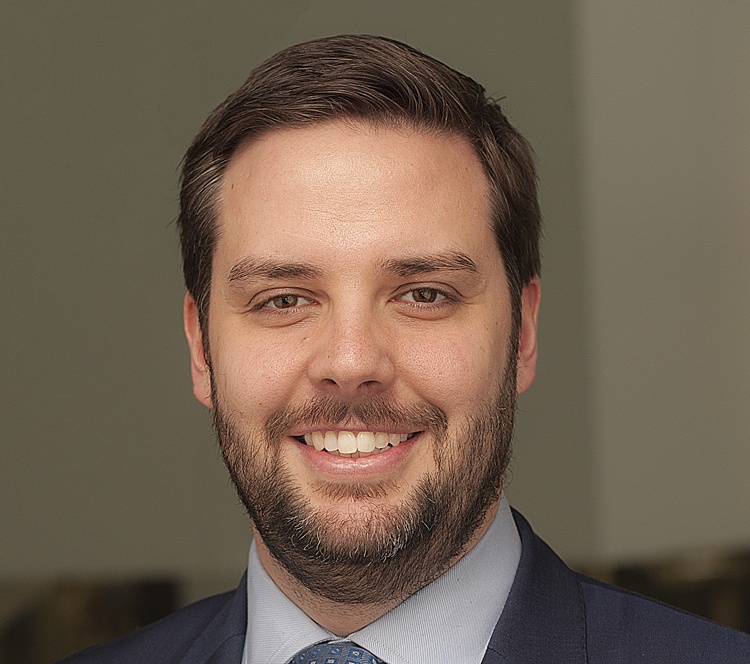After a few video calls, it takes only a cursory kick of the tyres to discern that employment lawyers have had a crazy year. ‘Crazy’ almost does not cover it – you would be hard pressed to identify an area of law that experienced more change in the last year, in both the rate of new law being created and the transformation in advice that advisers found themselves giving.
After the calm before the storm in January and February, by March 2020 the word ‘furlough’ entered the English lexicon with a vengeance as entire industries went into lockdown as a result of the Covid-19 pandemic. Ranjit Dhindsa, head of employment at Fieldfisher recalls: ‘For us in employment, it’s been a crazy year. It’s not in statutes or case law, it was introduced without going through the normal processes. From March we had this weird situation where there would be government announcements on a Friday, which would ruin every employment and HR person’s weekend, then you’d have written Treasury guidance. And often they didn’t sit well together.’
It is no exaggeration to say that employment lawyers were frequently compelled to become overnight experts this past 18 months as government edicts were unceremoniously rattled off at pace. According to the employment counsel consensus, client enquiries in March last year were unprecedented in numbers and urgency. RPC employment partner Kelly Thomson describes her interview with IHL as a ‘therapy session’, before adding: ‘This will be a period in my career I won’t forget quickly because of the pace of change. In law there are periods of time when you just do similar things, the same most days. Last year, in terms of the types of work and client relationships, was five years squeezed into nine months.’
As Chris Perkins, partner and employment team leader at PwC summarises: ‘Employment has been busy, and that’s been due as much to key employment law changes and case law as it has to redundancy work. Employment law has become front-page news much more than it ever was before, with landmark equal pay and status decisions.’
New normal
The first few months after the March lockdown were characterised by panic. Away from PwC, one employment partner talks of ‘seven-day weeks for a long time’ as clients frantically sought advice, predominantly on furlough. Queries generally centred on how furlough could be utilised legally – who can be furloughed? How can we make sure that we are not discriminatory in our use of furlough? Can people on furlough still have their employment terminated? Can we still do redundancies?
Sectors most compromised by the lockdown were the first to seek assistance – Dhindsa reports an uptick in queries from clients in the aviation and hospitality sectors. From around that time, she recalled: ‘I did one of my biggest cost cuttings, changing terms and conditions, for 20,000 employees. We had to do it all remotely, using technology given face-to-face meetings were not possible. There was no template or guidance.’
However as summer of 2020 approached and the world got more accustomed to the new normal, advice shifted away from dealing with furlough-specific panic, and became more focused on the heady notion of ‘the future of work.’
Perkins comments: ‘While greater flexibility is clearly a good thing, people were asking their employers: “If I can work from home, why can’t I work from Paris or Frankfurt?” Which, from an employment, HR, tax and immigration perspective adds a lot of complexity. It’s definitely keeping GCs and in-house lawyers awake at night. When everyone is in the same office, you have a nice consistent map of laws and regulations that guide your staff, but it gets complicated in terms of managing risks when people are spread out.’

Chris Perkins, PwC
The complications do not end there. In an era where corporates are rightly under the ESG spotlight, enforced home working raised questions around the various pastoral responsibilities that companies should now have. As well as monitoring performance and keeping teams together, remote working threw up significant challenges in terms of maintaining good mental health among workforces.
Perkins describes this wellbeing focus as a ‘top priority’ of his clients as the pandemic went on, and his colleague, PwC employment partner Laura Nadel, argues that the new normal actually provided a good opportunity for companies to reassess their policies: ‘Clients have really taken this as an opportunity to think about what is important to the business and their people. ESG, diversity and inclusion time and time again are coming up to the top of that agenda.’
Thomson chimes with the PwC view that wellbeing has shot up the agenda, before raising a macabre point around the minefield of responsibilities for employers: ‘There has been a huge increase in domestic violence during the pandemic, and work outside of the home was a really important safety net for people in that situation. That could become a legal issue. As an employer, to what extent do you have any responsibility here?’
And on the subject of diversity and inclusion, employment counsel must be sure to keep their clients wary of taking a backwards step in terms of the office environment. While hybrid working is surely a step in the right direction, there is a danger that the office will revert to being an exclusive zone for able-bodied men without childcaring responsibilities.
This poses the question of whether companies should go for a rules-based approach, which mandates people being in the office a certain number of days per week, or just try to lead on principles and allow individual managers to set team hybrid working policies. Experts predict the coming year will be an important one for testing the waters.
Absolute crisis
‘There is an absolute crisis in the employment tribunals at the moment’, affirms Will Winch, employment director at Mishcon de Reya. Despite employment tribunals having seen a surprising lack of Covid-related disputes so far, case backlogs are at an all-time high.
A recent report from The Times stated that outstanding claims reached a peak of 45,000 this year, considerably higher than the 36,000 seen in 2010 just after the financial crisis. The three-month pause in hearings in the spring of 2020 was cited as a major factor.
Unlike the commercial courts (which went above and beyond to continue hearings by embracing technology, perhaps due to better funding), employment tribunals were slow to adopt new technological practices that would have allowed for cases to flow at pace.
However, just as the pandemic is proving to be an opportune moment for companies to overhaul their working practices, tribunals appear to adapting out of necessity. Dhindsa reports: ‘Creating electronic bundles at the tribunals has been a new experience for many employment lawyers. I’ve not had to do it in my career before! But now it’s becoming normal.’
And it is inevitably only a matter of time before the tribunals begin cycling through the cases-in-waiting. In this sense, the comparison with the 2008 financial crisis is useful. Nadel observes: ‘litigation is inevitable after a big-change scenario like this, and a lot of clients are starting to see that. If you look at tribunal statistics, there was a huge uptick in 2009. If there are any bumps in the road, litigation is an option you can turn to.’
Road to recovery
What can employment lawyers expect of the year ahead? Perkins and Nadel insist that diversity and inclusion is only going to magnify in importance for clients in the coming 12 months, although it will not be an easy ride, with various legal implications. Perkins comments: ‘It’s all well and good saying “I want to reduce my gender pay gap”, but it’s all about having the data. From a data privacy perspective, how do I attain that data and keep it up to date?’
After a tough year, the economy seems to be mercifully rebounding in what Perkins terms a ‘deal-led recovery’, which has follow-on implications for employment counsel. ‘With deals often comes transformation post-acquisition, maximising value after the deal. Employment lawyers, particularly the more corporate minded, are going to be very busy.’

Laura Nadel, PwC
Furlough is set to end imminently, and employment lawyers have reported that such queries have dried up. But there is a consensus that an ensuing wave of furlough fraud work is likely, with HMRC keen to recoup finances after the government’s unprecedented bailout. As Dhindsa summarises: ‘Generally, the clients we worked with, have done it [the furlough scheme] responsibly. But because the scheme kept changing, there are innocent errors and mistakes. Especially if you’re dealing with hundreds of thousands of employees.’
And, if anything, the easing of emergency Covid-19 restrictions is set to cause an uptick in work in the short term. As Thomson says: ‘The onus is now on businesses to set the level of restrictions they want or need. It doesn’t make it easier for them, it actually makes it less clear.’
Employment lawyers are set to benefit from having harnessed new skills and an even more robust outlook after last year, ensuring they are more than ready for the coming challenges. However, it is crucial that advisers retain their personal touch. Thomson concludes: ‘You can’t advise a client properly if you’re not thinking about the individual human aspect of it. However corporate what you’re doing is – like an acquisition between two organisations – when you start to look at the people aspects you immediately think “what does this mean for this individual and their family?” They’re bringing all of that to the meeting when they’re discussing the implications. There is always that overlay.’


